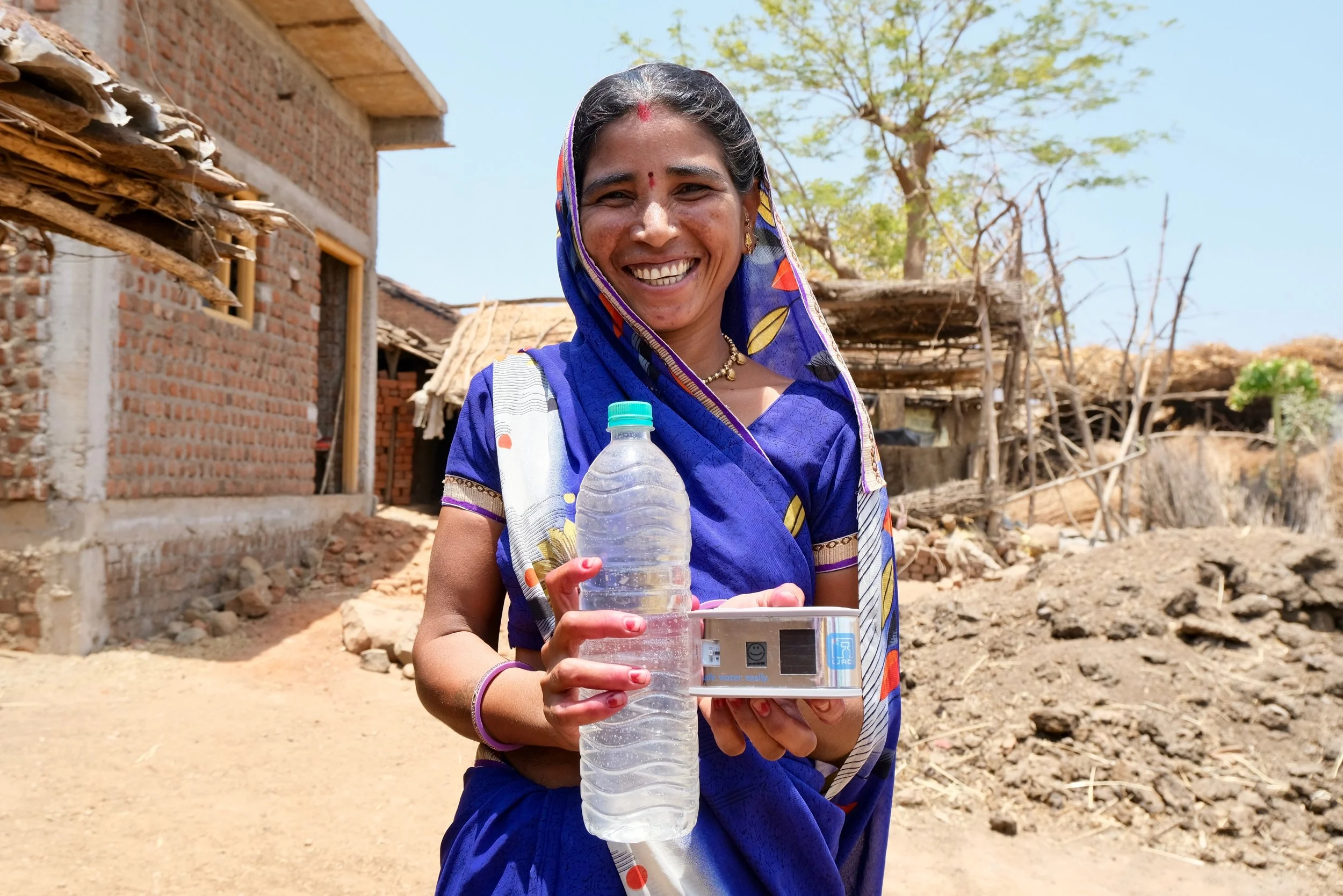Clean Water
The Problem
Globally, 2.2 billion people – 1 in 4 – lack access to safe water. Each year, 829,000 people die from diseases directly attributable to unsafe water, inadequate sanitation and poor hygiene practices.
Unsafe water, sanitation and hygiene (WASH) is still responsible for the deaths of around 400,000 children under the age of 5 each year, or 1,000 every day.
$260 billion is lost globally each year due to lack of basic water and sanitation.
India specific:
• India is home to 63.4 million rural people without access to clean water, the highest in the world.
• 40% Indians will have no access to drinking water by 2030.
• 21% of communicable diseases are linked to unsafe water.
• The prevalence of childhood diarrhoea has increased from 9% to 9.2% from 2016 to 2020 in India.
• The prevalence of waterborne diseases leads to an estimated economic burden of approximately USD 600 million per year in India.
Our Solution
• Provide free/subsidised devices and infrastructure at household and community level, in partnership with local NGOs and social enterprises.
• Substantively contribute to multiple UN SDGs.
• Planning, implementation and monitoring via digital platforms and independent verification to ensure carbon registry compliance.
• Availability of clean drinking water to the beneficiaries for over 10 years.
Our Impact
So far, the interventions have provided clean drinking water access to over 225,000 people, aligning with multiple UN Sustainable Development Goals (SDGs):
• UNSDG 1: 100% access to basic services at zero/nominal costs, reducing poverty within project areas.
• UNSDG 3: Reduction in waterborne diseases across 45,218 households by filtering 350M litres of water annually.
• UNSDG 4: Advancement in education with digital literacy training to 150 individuals.
• UNSDG 5: Women are saving 589 hours per household per annum, promoting gender equality.
• UNSDG 6: Over 225,000 people have clean water infrastructure, thereby promoting safe drinking water, sanitation and hygiene.
• UNSDG 7: Provides low/zero energy solutions to access clean water.
• UNSDG 8: 180 individuals have been employed under various project activities.
• UNSDG 9: Promotes local SMEs like Watsan Envirotech Private Limited through water filter usage.
• UNSDG 10: Addresses social inequalities by providing clean water to 45,218 vulnerable households.
• UNSDG 13: Expected to reduce 1,664,660 tonnes of CO2e emissions over 10 years, contributing to climate action.
• UNSDG 15: Saves 183,918 tonnes of fuelwood per household per annum, preserving tree cover and biodiversity.
• UNSDG 17: Collaborates with several partners in project implementation, technology, and finance sectors, enabling impact at scale.


